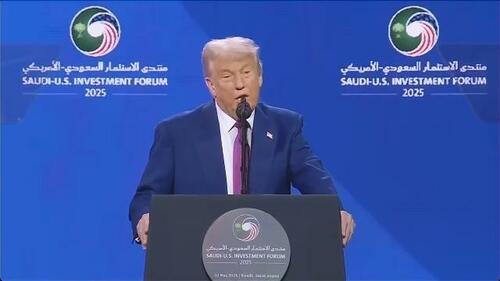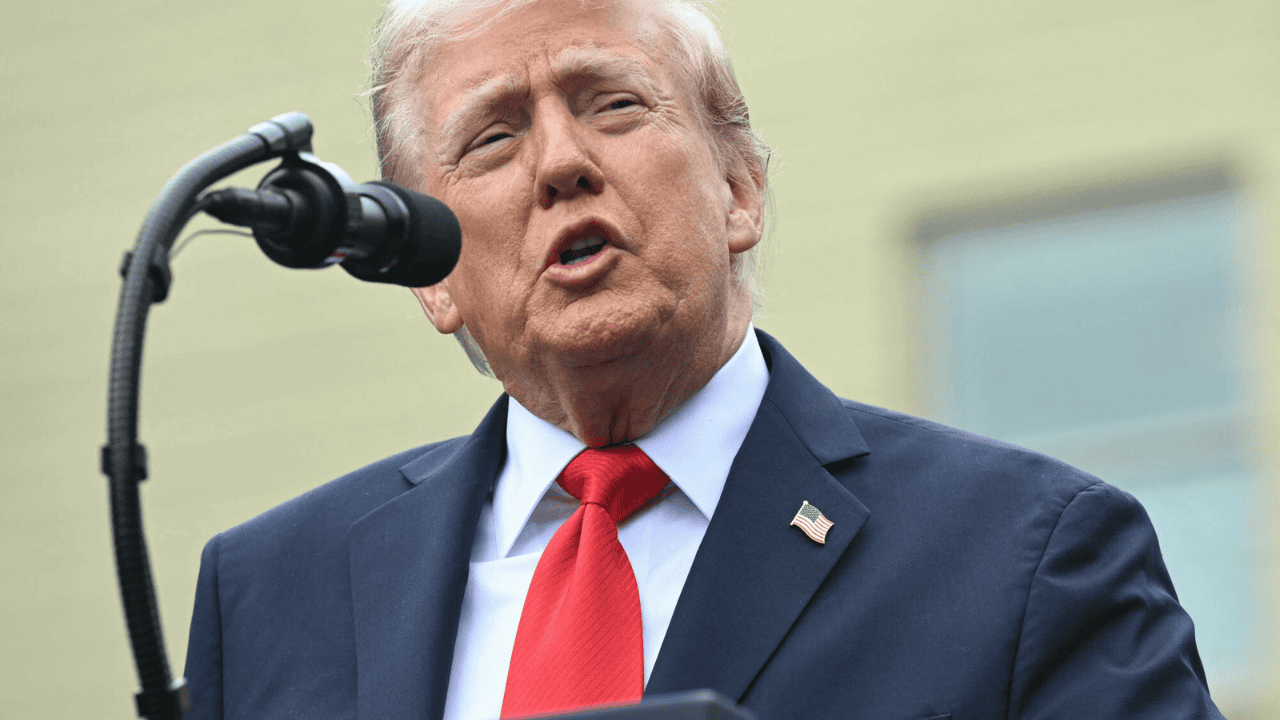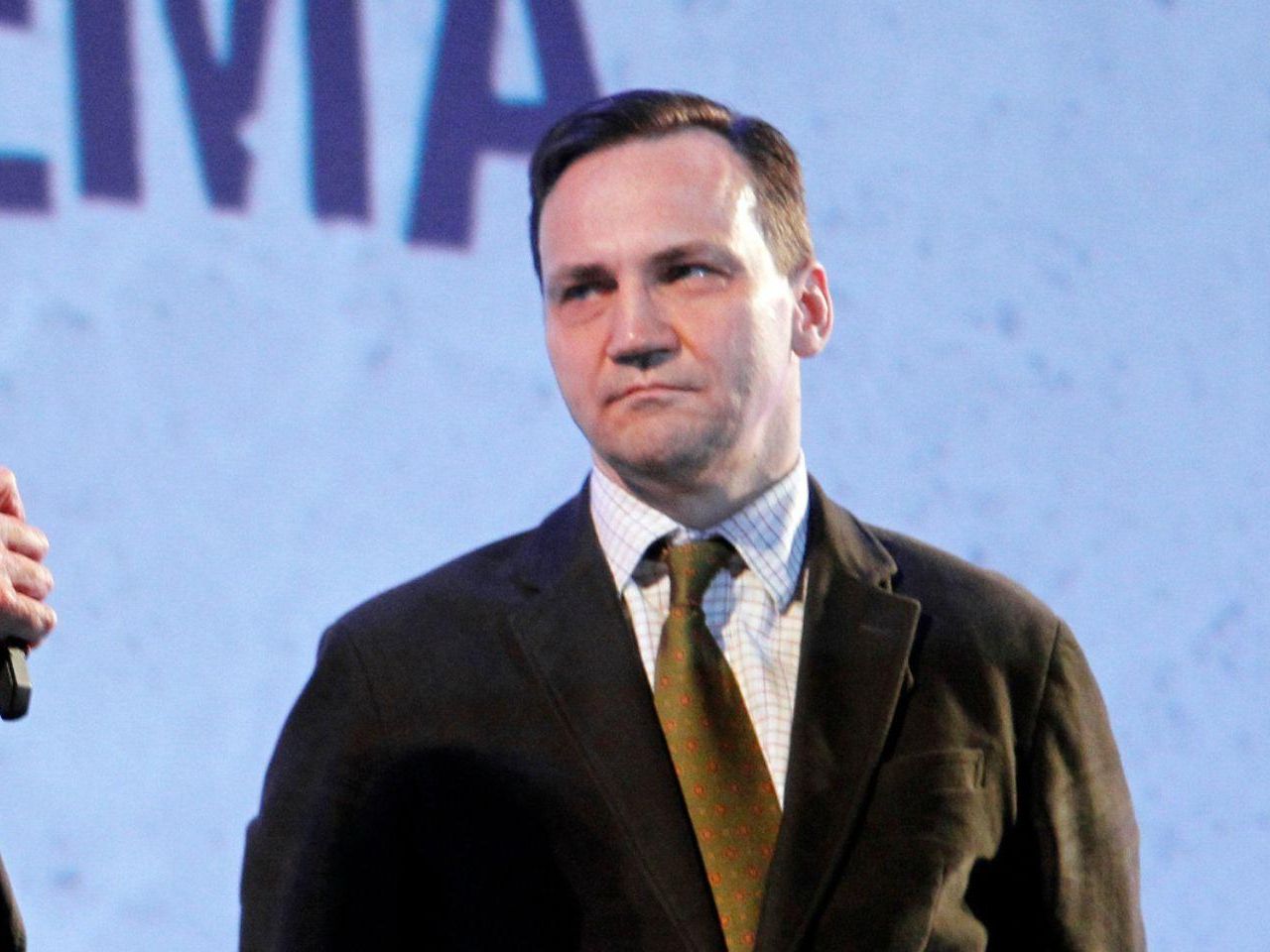
Out Of Chaos, A New World Order
Authored by Allan Feifer via AmericanThinker.com,
Watching President Trump speaking from Saudi Arabia, I almost felt sorry for a moment for our enemies. They must ponder how to stay relevant as the world seemingly metamorphizes before them, powerless to stop the transformation. In his speech, the President said something so powerful yet unconventional that I had to stop and consider why he was the first leader of our country to say it:
Before our eyes, a new generation of leaders is transcending the ancient conflicts and tired divisions of the past and forging a future where the Middle East is defined by commerce, not chaos; where it exports technology, not terrorism; and where people of different nations, religions, and creeds are building cities together, not bombing each other.
Commerce is a recurring theme for Trump. His detractors miss the significance of exactly why commerce is so central to Trump’s vision of world peace and why he does not believe in “forever” enemies. I admit that Trump’s beliefs are unconventional for many, including myself.

Trump sees Russia, North Korea, China, and a great many nations and people as future participants in a world of commerce. At the same time, Trump views some nations, traditionally considered friends, as potential adversaries and impediments to such a change in posture. It’s a lot to take in.
In essence, Trump’s vision can be seen as a balance between stakeholder interests and dogma. I admit millions of us are heavily invested in dogma, including myself. Dogma is generally thought of as:
-
A doctrine or a corpus of doctrines relating to matters such as morality and faith set forth authoritatively by a religion.
-
A principle or statement of ideas, or a group of such principles or statements, especially when considered authoritative or uncritically accepted.
-
That which is held as an opinion, a tenet, a doctrine.
Trump sees dogma as static thinking that sees us imprisoned in a cage of a single acceptable outcome, based not on logic but on past decision matrices that have worked at one time or another, but are not readily transferable to the current challenges. The world economy is on a path to bankruptcy, with almost no country putting debt management first. We reflexively return to the old solutions rather than look for an entirely new Rosetta Stone.
At American Thinker, Thomas Kolbe wrote:
In the first quarter of this year, global debt surged to a record high of $324 trillion. This milestone becomes significant when compared to global GDP, which currently hovers around $110 trillion. Governments worldwide now owe 100% of GDP — an alarming reality, as no modern state has ever managed to free itself from the ensuing fiscal bind once this threshold is reached.
That Rosetta Stone is about collective wealth creation versus inevitable death through debt.
When I am plagued trying to reconcile ambiguities, I frequently fall back on my love of the 18th-century thinker Immanuel Kant, who is most remembered for his work explaining “pure reason,” “practical reason,” and his ideas concerning applying judgment.
I tend to understand Kant best with these three statements:
-
What we experience and our perceptions are not necessarily reality.
-
The limits of our abilities can be reflected in our choices, which almost always demonstrate the limits of our knowledge.
-
The morality of our actions can only be defined by what can be logically inferred, yet it is imperfect.
The bottom line that extends these three precepts into the here and now is Trump’s new dictum—trade makes right.
In other words, nations that depend on each other to be wealthy and prosperous rarely fight each other. The old Reagan dictum was “Peace through strength.” Trump would turn that around to “Peace through interdependent trade.”
We have a Scythian choice before us. Keep doing the things that are comfortable and familiar, or do something radically different, even if it may seem risky or untried.
Trump demonstrates that he is not a theoretician by flatly denying Iran access to nuclear weapons.
This is proof positive that he is not naively foolish. We haven’t seen an entirely new approach that promises to change the trajectory of the world economy since the Marshall Plan was implemented immediately after WWII.
Trump hasn’t named his plan, but the means and objectives are now clearly in sight. We should all wish him success because he is the captain of our Ship of State.
Tyler Durden
Wed, 05/14/2025 – 17:00












